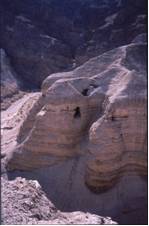| |
How reliable are the Gospels?
 |
This gives an honest account of the context, date and authorship of each of the four Gospels, explaining how they relate to Old Testament traditions. This comes from the Foundations 21 website which has lots of helpful interactive material. |
Note:
-
We have thousands of manuscripts and fragments of New Testament material from very early after the time when Jesus was on Earth. This is a huge body of documentary evidence in comparison to anything else in the ancient world.
-
People like to suggest that this material is unreliable because it is based on initial ‘oral traditions’ i.e. stories passed on verbally. What they fail to realise is that oral traditions are handled with great care in a society where many people cannot read. The analogy with ‘Chinese whispers’ is wholly inappropriate.
-
Others comment that some written fragments have a different word here or there; therefore they claim that we cannot trust that we have the original documents. Again this is an unwarranted and rash conclusion. When scribes copy sacred documents by hand, there is always the possibility for the odd error despite the care they exercised. Anyone who has done proof-reading will know how easy it is to miss simple mistakes. But the Bible is open about these where they occur; there are notes in the margins. Secondly we need to note that such variations as do exist account for far less than 1% of the whole text and they do not make a significant difference to any major doctrine. Thirdly scholars have developed a rigorous approach to deciding between these variants that can almost always uncover which was most likely the original.
-
The discovery of the Dead Sea Scrolls at Qumran (essentially the whole Old Testament) confirmed the authenticity of those parts of the Bible from what was both a very early and also independent source. We can be very confident that the Bible we have is the Bible that the earliest Christians aimed to produce.
-
One other attack on the Bible comes from those who cite other ‘gospels’ that are not included in what Christians recognise as the New Testament. They ask why these are not considered to be part of what is known as the ‘canon of Scripture’. Who decided?When? How? The short answer is that the church was well aware of all sorts of writings about Jesus and correspondence among church leaders; the books and letters that we have today were those that were found to have that quality that seemed to be from God. If you read some of the other material you will soon see that it does not.
|
|
 |
Accounts of the formation of the canon of Scripture
-
For a more detailed answer see How the bible came together where distinguished New Testament scholar FF Bruce gives a clear historical account. !! Sorry this link no longer works!!
-
Wikipedia has a good article: The Bible through history. This might suit those who want an ‘unbiased’ source. You will find here that, despite some small differences, churches from a huge spectrum of the Christian faith basically agree wholeheartedly on the books that are authentic.
Use the email address below to give feedback / ask questions to the author, whose views these pages reflect
Six Big Questions Rev John Hibberd sixbigquestions@throughfaithmissions.org
|
|
|
|